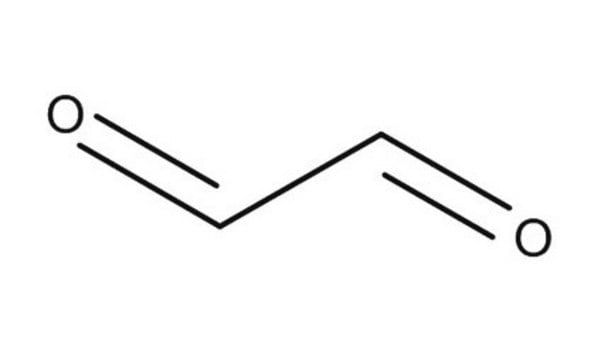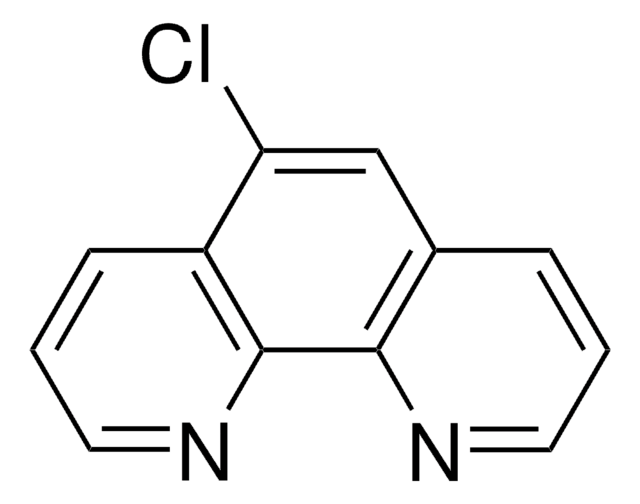131377
1,10-Phenanthroline
≥99%
Synonym(s):
o-phenanthroline
About This Item
Recommended Products
Assay
≥99%
form
powder
mp
114-117 °C (lit.)
SMILES string
c1cnc2c(c1)ccc3cccnc23
InChI
1S/C12H8N2/c1-3-9-5-6-10-4-2-8-14-12(10)11(9)13-7-1/h1-8H
InChI key
DGEZNRSVGBDHLK-UHFFFAOYSA-N
Gene Information
human ... FNTA(2339)
Application
- A cathode buffer layer to improve the efficiency of organic solar cells.
- A conventional chelator to study its efficacy in Fenton′s reaction-luminol chemiluminescence system.
- A ligand in mild, copper (II)-catalyzed cross-coupling of organoboronic acids and sulfinate salts, leading to aryl- and alkenylsulfones.
- A versatile ligand employed in the spectrophotometric determination of metals and photocatalytic reduction of carbon dioxide.
- A building block for metallomacrocycles.
Signal Word
Danger
Hazard Statements
Precautionary Statements
Hazard Classifications
Acute Tox. 3 Oral - Aquatic Acute 1 - Aquatic Chronic 1
Storage Class Code
6.1C - Combustible acute toxic Cat.3 / toxic compounds or compounds which causing chronic effects
WGK
WGK 3
Flash Point(F)
Not applicable
Flash Point(C)
Not applicable
Personal Protective Equipment
Certificates of Analysis (COA)
Search for Certificates of Analysis (COA) by entering the products Lot/Batch Number. Lot and Batch Numbers can be found on a product’s label following the words ‘Lot’ or ‘Batch’.
Already Own This Product?
Find documentation for the products that you have recently purchased in the Document Library.
Customers Also Viewed
Our team of scientists has experience in all areas of research including Life Science, Material Science, Chemical Synthesis, Chromatography, Analytical and many others.
Contact Technical Service














